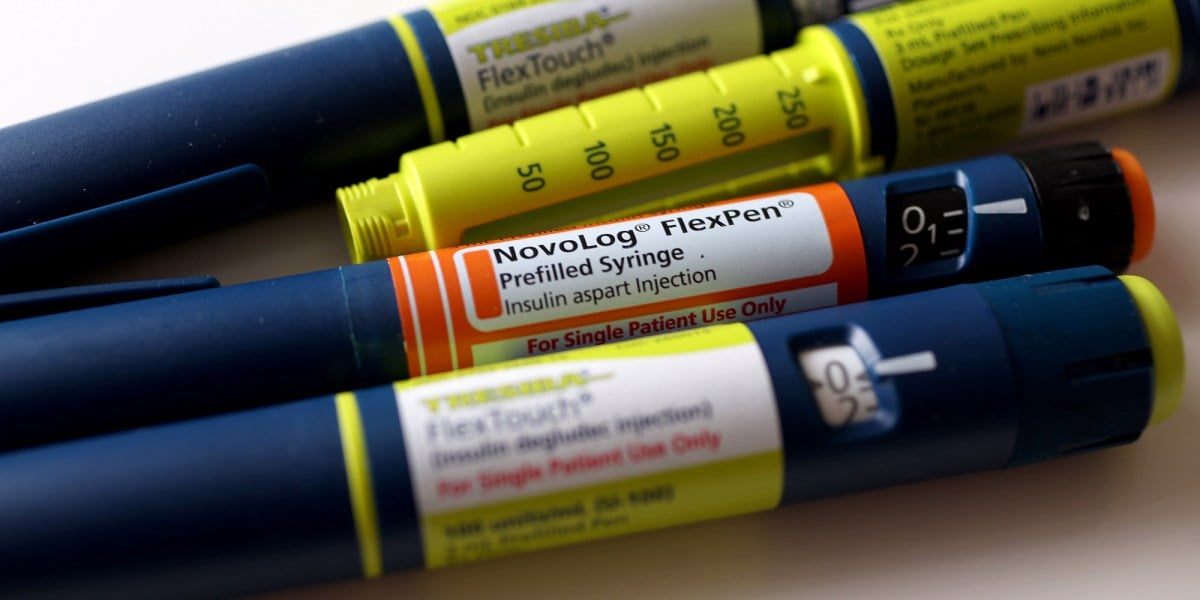“This was an unexpected victory in a long fight against an illegal cartel of three corporations who have raised their insulin prices in lockstep.”
The Biden Administration pleasantly stunned health care reform advocates Tuesday by including short-acting insulin in its list of 10 drugs for which Medicare will negotiate lower prices, power vested in the White House by the Inflation Reduction Act.
The IRA was passed in the face of one of the heftiest barrages of lobbying in congressional history, with the pharmaceutical industry spending more than $700 million over 2021 and 2022 — several times more than the second- and third-ranking industries — much of it aimed at stopping the legislation, watering it down, or undermining its implementation.



And they’ve already filed lawsuits:
Just ridiculous.
https://www.cnbc.com/2023/08/29/10-drugs-to-face-medicare-price-negotiations-see-the-list.html
A great way to tell that a business is making way too much money is when they can afford to hire monkey cages full of lawyers to fling every terrible legal argument they can think of at you in the hope that one of them somehow sticks.
It is more cynical than that. They want to out spend the resources available to fight them, not win a legal case.
I don’t think they’re going to outspend the federal government though.
It’s not a cruise missile, there are limits.
Especially when they already own half the Senate.
They don’t need to. They need to outspend the specific attorney’s dept. Plus, many are counting on a change in administration before any consequences of merit.
deleted by creator
One thing that bothers me about the law. This kinda thing. There should be some sorta limit on how many arguments you can present. Multiple bad arguments does not equal a solid one.
And yet in every other country where they have to bargain against a centralized healthcare system, they are able to provide a decent price.
The US needs to take decisive action against these sociopaths.
Preferably with guillotines.
Import of French negotiation technology.
It will be interesting to watch this shake out, because this decision could have a lot of knock-off effects when it comes to further price negotiations by the government across a wide array of sectors.
“Below market rate”
If only looking at the USA where pharmaceutical companies are free to do as they please, but probably still higher than in any other rich countries in the world.
Yeah I think that’s going to end up being a pivotal distinction here, as these are companies with global reach and thus “market rate” will be a difficult concept to defend.
Exclusivity contracts would be one thing, but suggesting this is an egregious step by the US government is going to be a difficult case to prove imo.
Their proof will be with “vacations” etc for the judges sitting the trial.
Charge what they please. They are heavily regulated in what they can do. Which is why stuff like the J&J arsenic event is a once a decade thing vs a constant thing.
They likely are subsidized by the federal government anyway. As far as I’m concerned, any time the government gives money to a corporation, they’re no longer a private company until they pay it back.
Market rates aren’t reasonable compensation.
Just reading this it looks like they had this in their back pocket for a while lol
Oh yeah, lawyers start preparing these lawsuits as soon as an announcement is made (in this case the legislation being announced). They just don’t file them until absolutely necessary.
At this point the first amendment is just their catchall for any time they want to stop the government doing something, isnt it? Selling drugs isnt speech, making cakes or websites isn’t speech, you fucking monsters don’t have to like it and you don’t have to pretend to like it, you just have to stop destroying people for money.
Sure Jan. 🙄
But doesn’t medicare already negotiate prescription drug prices? Or am I thinking of something else?